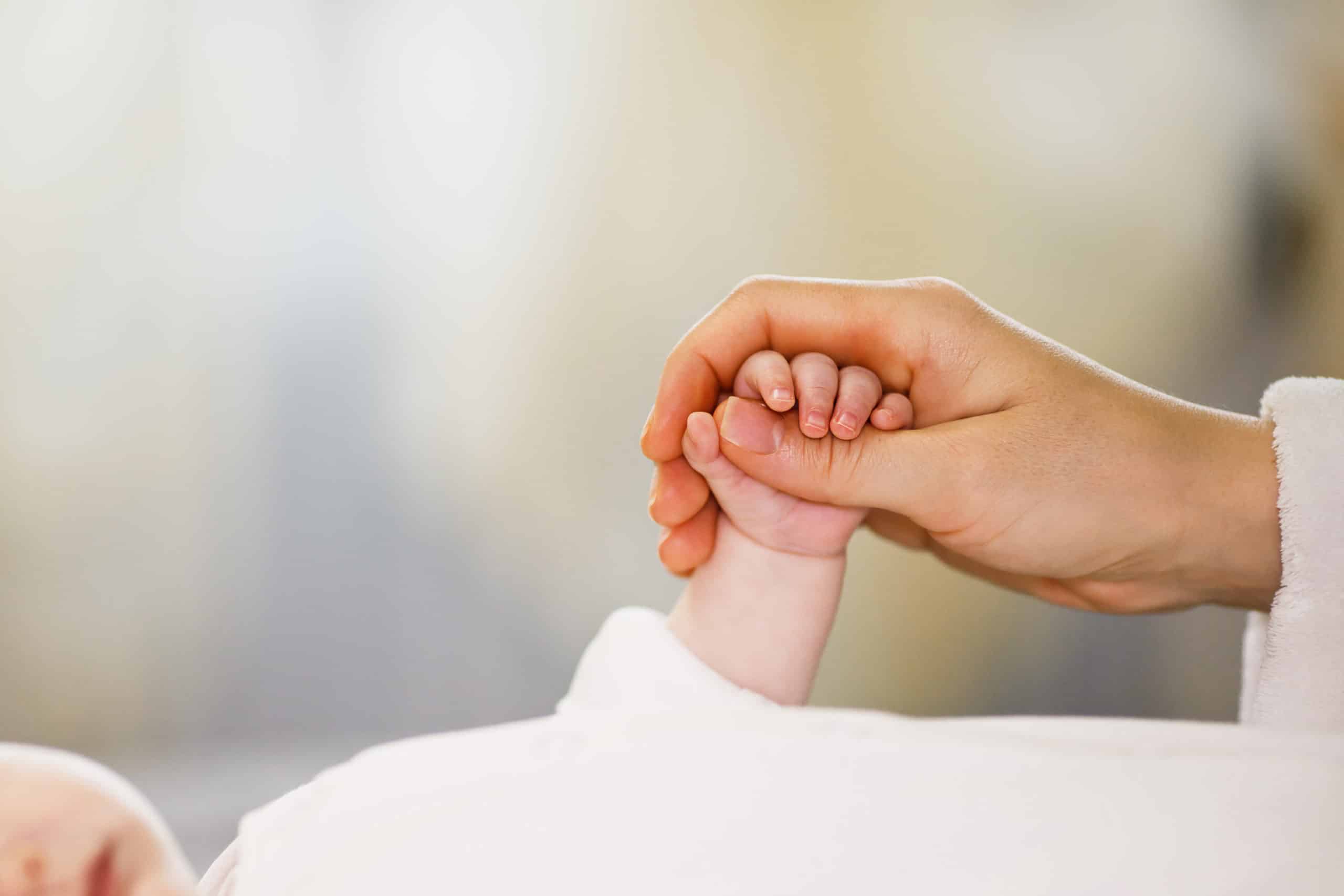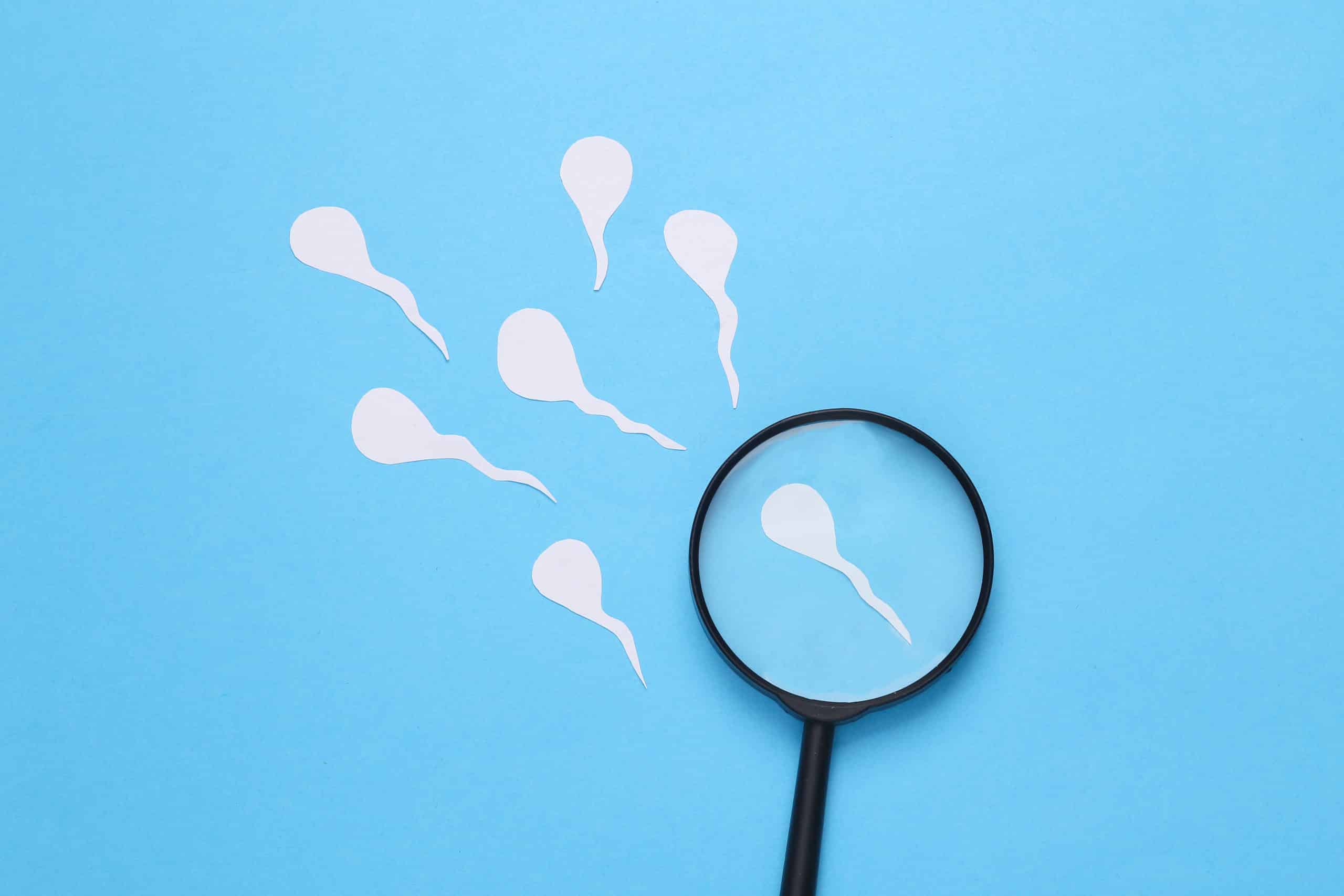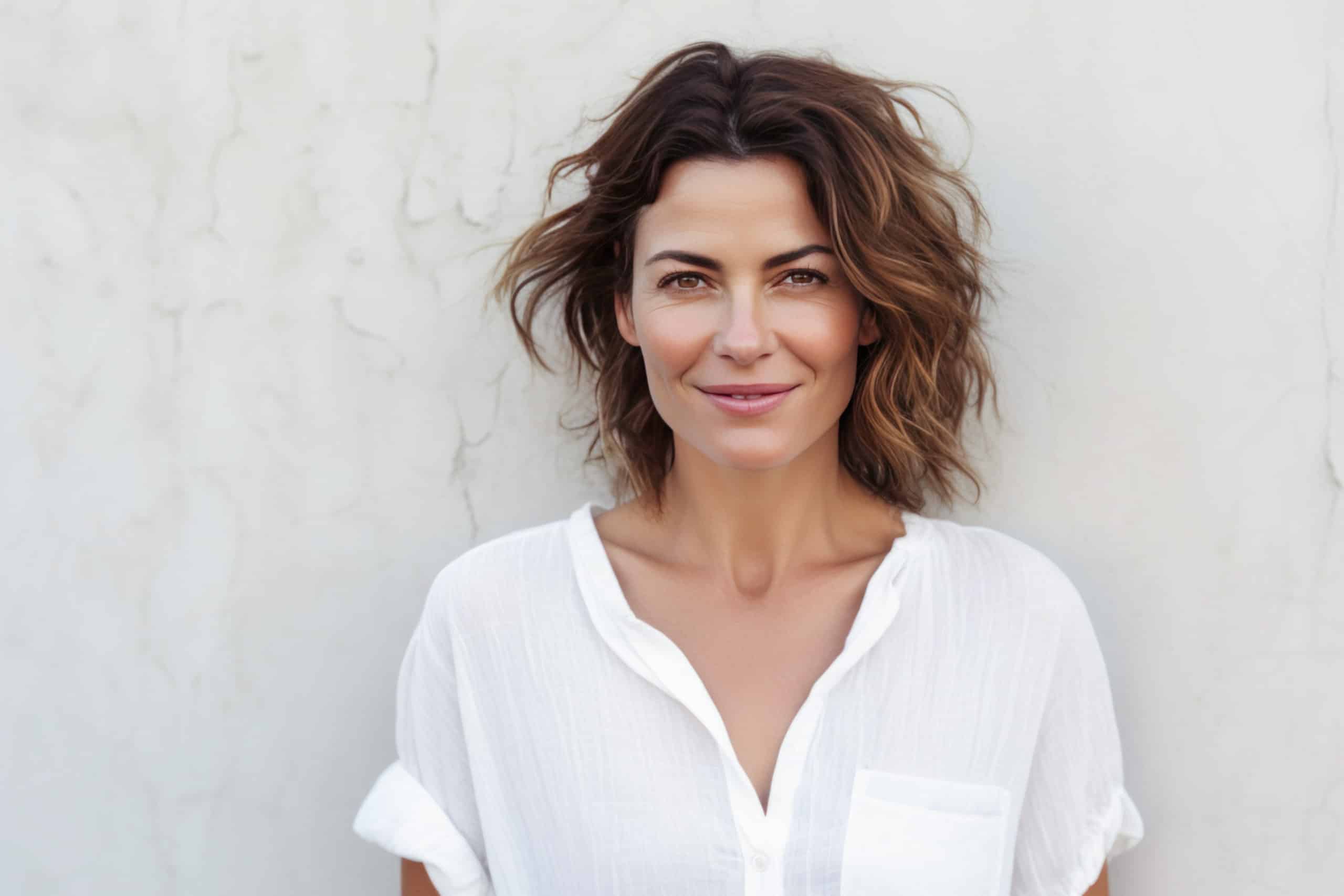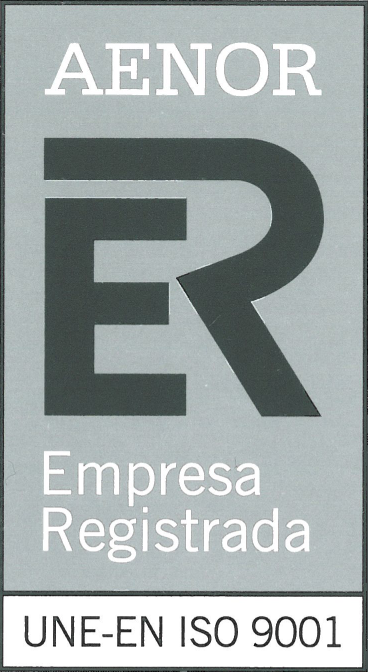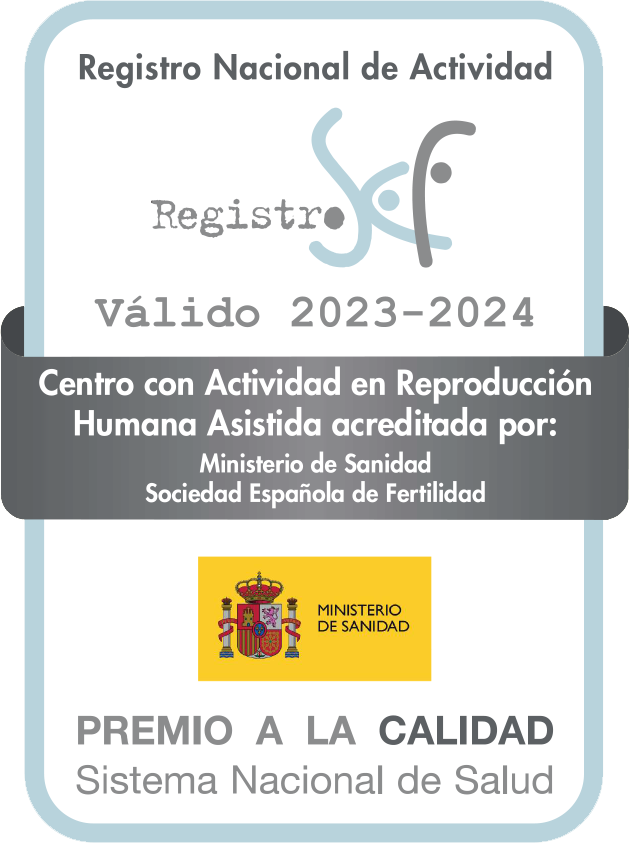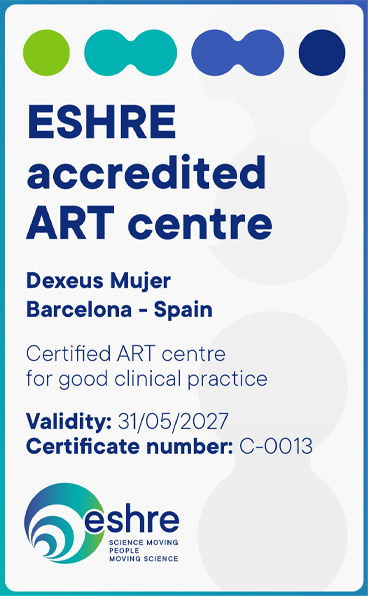Practical guide to choosing centre and treatment
Turning to an egg donor is a necessary and a more frequent step in many assisted reproduction treatments, as with increasing age the ovarian reserve lessens, as well as the quality of our eggs. However, if you have been advised to do it, the news may catch you off guard, and you do not know what to ask. Most of us think that the most important thing is to find the right donor, but there are other factors to be taken into consideration, and that can only be evaluated by an experienced team. In this post we want to show you what are the key aspects and what to consider when choosing the centre and starting an egg donation treatment.
The centre’s experience counts for a lot, because having already dealt with several cases, many of them being complicated, it leads to a wider vision and a greater results casuistry. So that, it can easily anticipate any potential problem and know how to respond if the results are not as expected, as well as advise the best treatment option for you. Our centre pioneered the introduction of this treatment in our country.
Check options and compare. Sometimes we think that some centres are much more expensive than others just because they are renowned, or because being bigger they will give us a less personalised follow-up. But it is important to be well informed, compare and contrast the options they offer, because, in general, the prices are not very different from one another. What matters most is that the treatment meets your needs and both the centre and the professionals inspire confidence. So it is worth spending some time consulting options, requesting a visit and evaluating the possibilities before deciding.
Information transparency. Do not hesitate to openly ask for more information regarding success rates of all treatment options. This concept points out the probabilities of achieving a pregnancy by transferring an embryo during its 5th or 6th day of development, when it is already prepared to be placed in the uterus. There is also another concept, what professionals technically call “cumulative rate”, that adds up the possibilities of achieving a pregnancy if more than one embryo transfer attempt is made. It is very important that the centre offers you clear and concrete data on this matter, and also indicates what the miscarriage rate is, so that you can get an idea of ??the real success of the technique.
How to choose the best treatment. Although the donor is a key player, she may not respond well to ovarian stimulation treatment or other problems may arise during the fertilisation process or the embryo development that could delay or hinder the pregnancy. For this reason, in addition to the pros and cons as well as the cost of the various options, it is necessary to take into consideration your personal circumstances and the time we are willing to spend to achieve a pregnancy. At our centre we offer an egg donation treatment that guarantees the transfer of a good quality embryo regardless of the number of oocytes obtained from the donor. This treatment accelerates the entire process, and the patient does not have to worry about other intermediate steps such as a failure during the patient-donor synchronisation, the donor could be discarded due to a bad response or a sufficient number of oocytes is not obtained for the insemination. For example, this is a particularly suitable option for women with a male partner whose sperm has enough quality to fertilise the egg, or for those who, due to advanced age or other circumstances, cannot wait longer to get pregnant. According to our statistics, the possibility of achieving a pregnancy on the first attempt with this treatment is 64%. And, in case the first attempt fails, we offer another treatment option which includes the possibility of a second transfer, either with frozen embryos -if they have been left-, or selecting a new donor to obtain a new optimum quality embryo. This option offers a cumulative pregnancy rate of 83%.
Personalised care and the possibility of choosing your doctor. It is essential in order to establish a relationship of trust.
Does it offer treatments for the couple as a whole? If you have a male partner, ask if the centre conducts fertility studies for couples and if it has specialists in sexuality and pathologies that affect male reproductive function. At Dexeus Mujer we have a specific men’s sexual health unit (the Men’s Health Unit) working in coordination with the Assisted Reproduction Service. We carry out fertility tests and check-ups jointly for couples who request it, which also helps to speed up the choice of treatment.
Does it have its own laboratories? The fact that the centre has its own laboratories for In Vitro Fertilisation, Preimplantation Genetic Diagnosis (PGD), Andrology and Cryopreservation, centralises and greatly accelerates the results achievement. In addition, it allows professionals from different fields -gynaecologists, andrologists, IVF specialists and embryologists- to work together in a coordinated way, which is common at Dexeus Mujer.
How are donors selected? In our center a very thorough screening is carried out to confirm their good health, which includes: psychological evaluation, hormonal analysis and ultrasound, gynaecological check-up (physical examination, personal and family medical background check, Pap-smear and chlamydia test) as well as an electrocardiogram. A complete blood test is also performed, including a blood count, serological tests (to detect the presence of HIV, hepatitis B and C, and syphilis) and a chromosome study to identify any karyotype abnormality that could lead to a negative effect on fertility or offspring. In addition, all of our donors undergo the qCarrier screening in order to prevent the transmission of recessive genetic diseases that are hereditary (cystic fibrosis, X-Fragile syndrome, spinal muscular atrophy, etc.).
Do they offer genetic counselling? It is important for the centre to have genetic specialists who provide counselling to prevent the transmission of inherited diseases to the future baby. In our center we perform a specific test, both for couples and donors, in order to reduce the risk of transmission of recessive hereditary diseases and to choose the suitable donor.
Do I take the risk of trying my luck or do I choose a treatment offering more than one attempt? It is not a matter of taking risks but of getting well informed. Almost all centres offer both options, but chances of success and personal circumstances must be assessed before choosing.
Read «the fine print» of promotions. Promotions are usually very tempting, but you have to «read between the lines» and consult with a professional. So, as advised in the previous point, ask openly for information regarding those promotions you are interested in. For this reason, in our centre we currently offer a first free informative visit.
How will the follow-up be dealt with? It is important to know how the follow-up framework will be organised during your treatment. Whether you can ask your doubts directly to the doctor or a patient care service would handle it, how the information will be sent you, etc. Depending on how they respond you can guess if it is well organised and if your needs are met.
Additional Loyalty Benefits: Ask if the centre offers additional benefits for being patient or for having performed any other treatments. Most offer them, but not all of them are equally advantageous. It is worth getting informed beforehand.
